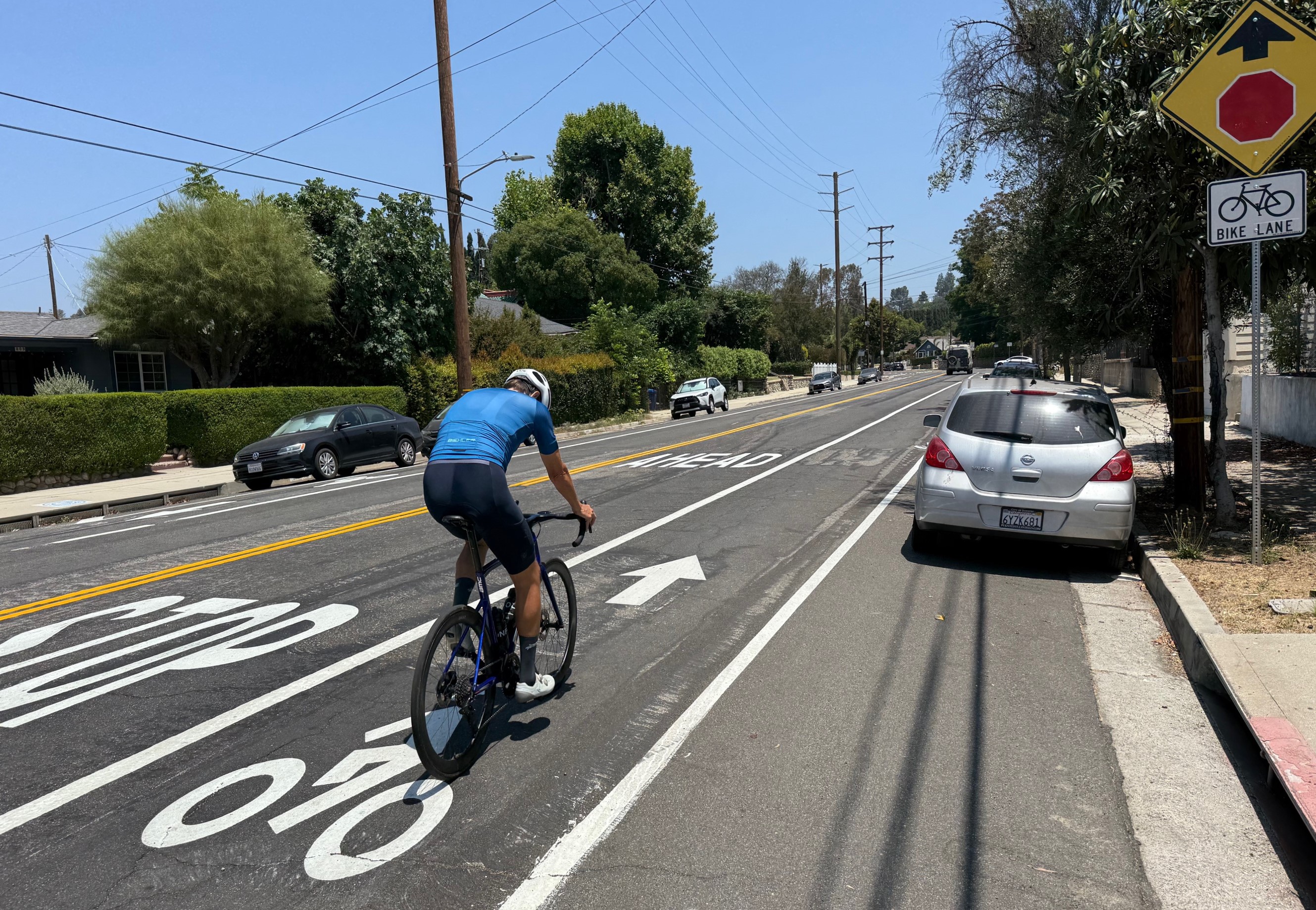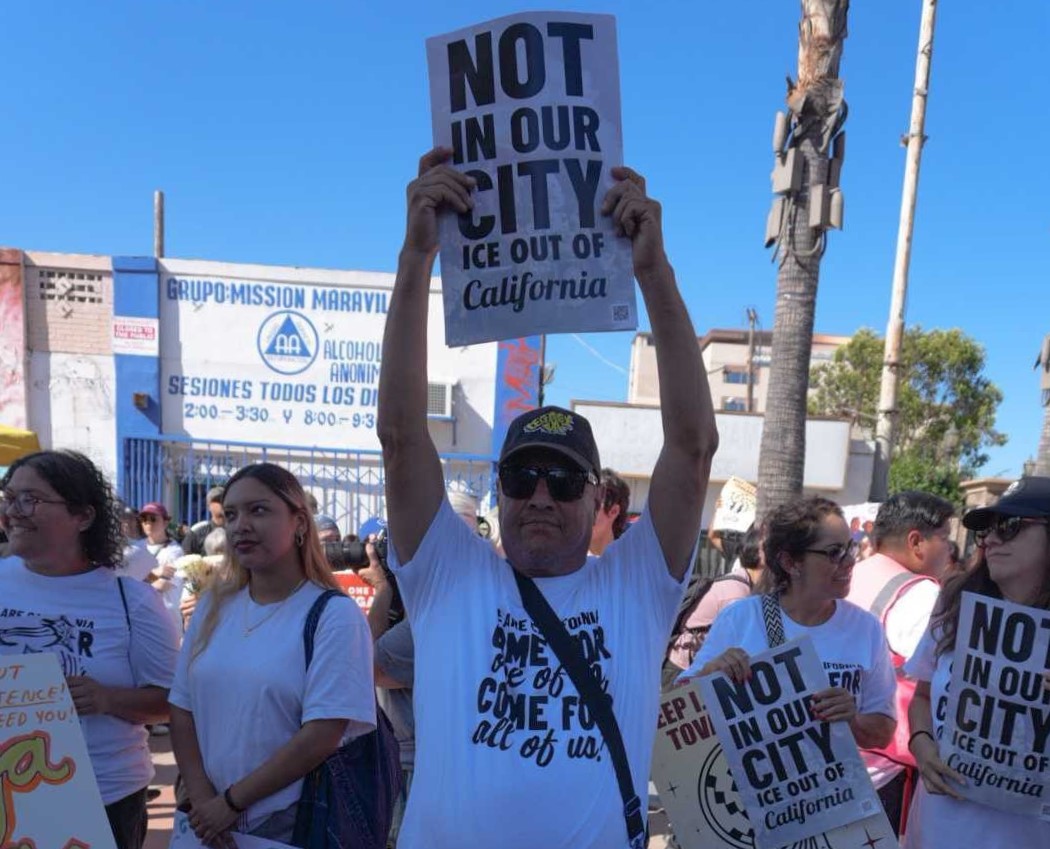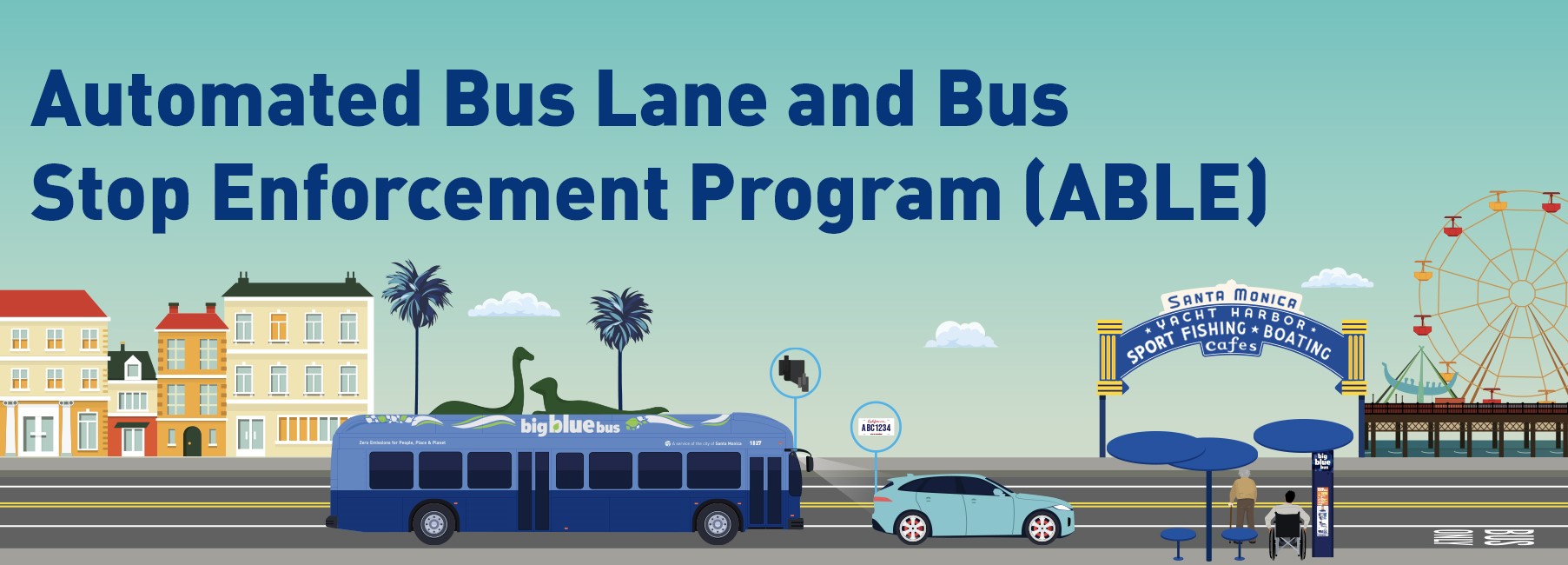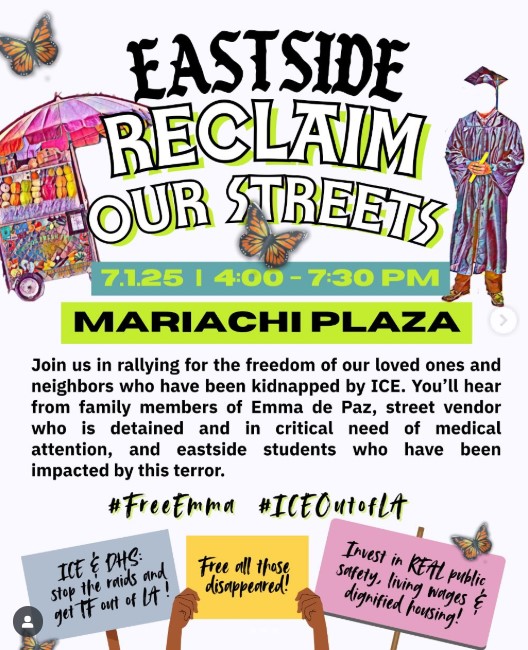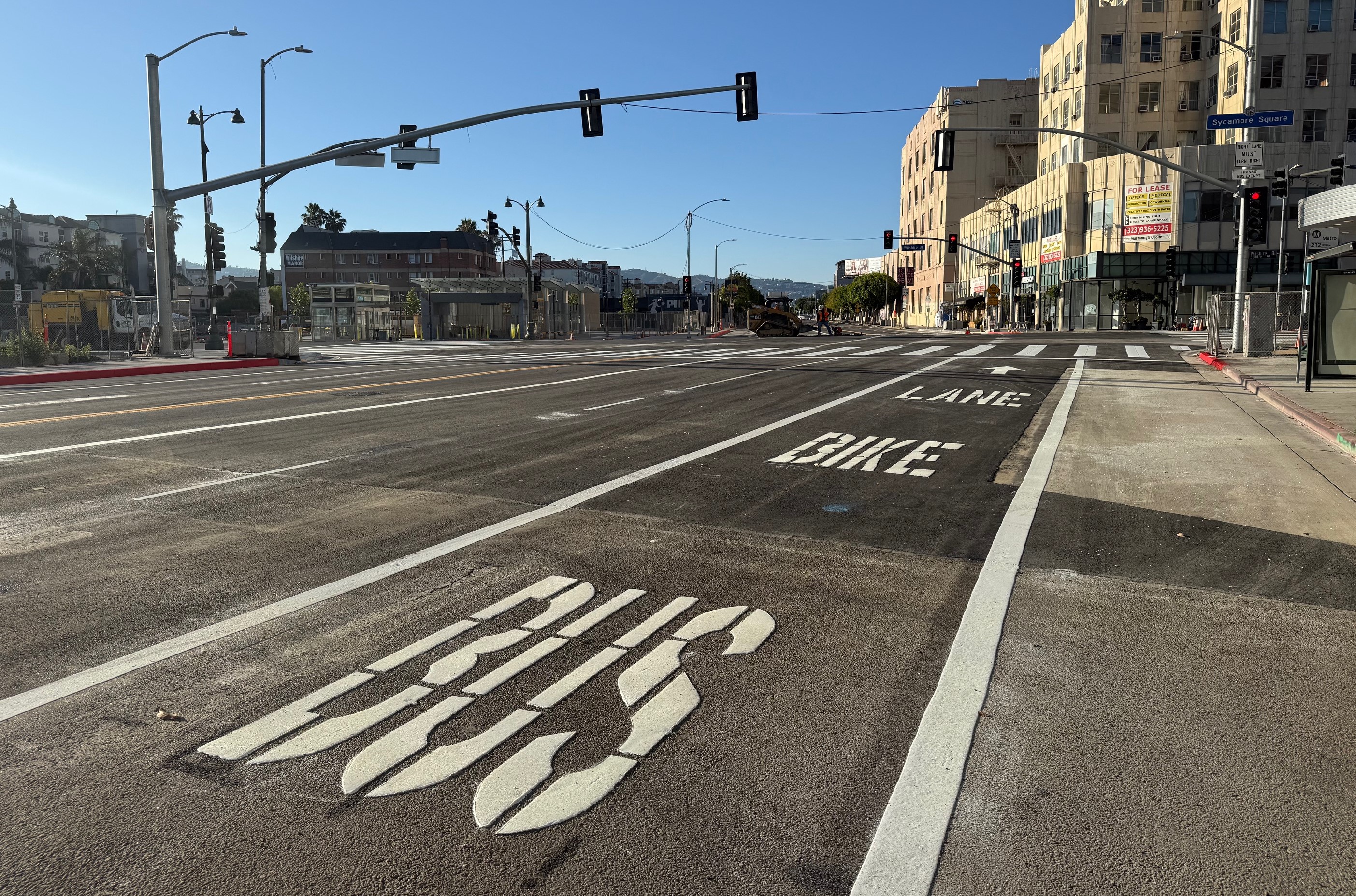(Miguel A. Luna is a native of Colombia, an avid reader, and longtime advocate of community playing an active role in city, state and nationwide policies. An urban resident of Los Angeles for over 25 years, he commutes mostly on bike and public transportation after giving up his car in 2005.)
I find myself mulling over what sustainability in our communities means. Its interpretation has run the gamut: at times, it has been generally dismissed as just a buzzword or more specifically looked at as solely improving the physical infrastructure of a city.
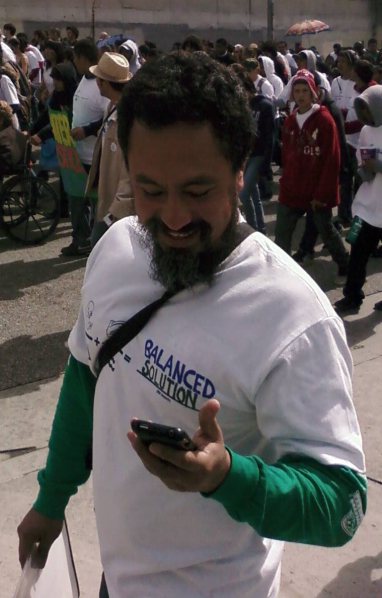
In Los Angeles, many innovative projects to improve our urban environment have been proposed. Last week, Next City reported on the need for healthy food hubs in industrial Chinatown and Lincoln Heights, while other exciting projects to restore the L.A. River and expand transit are blossoming. This is key, as L.A.’s most urban neighborhoods with the poorest residents have long lacked access to green facilities, like parks or walkable/bikeable streets.
We’ve seen pricey in-fill and transit-oriented development displace low-income communities to more distant areas. New green infrastructure in our neighborhoods does not ensure sustainability alone. Neighborhoods are also about sustaining people and culture too. Economic stability is important for low-income residents presently living in the city’s core and in other communities throughout the city currently being revitalized.
It might seem curious for Streetsblog readers to be hearing from an environmentalist on why we need to raise our city’s minimum wage.
For years, I’ve worked on projects to improve the environment for youth and their families, especially with access to the LA River and bicycle and pedestrian improvements. But I am equally passionate about raising the minimum wage and I am involved because I believe the two issues are very interrelated.
We’ve seen vigorous discussion on the blogosphere about how many neighborhoods’ specific plans (such as the Hollywood Community Plan) and Metro projects (such as Expo Line TOD raising property values significantly) are spurring on gentrification in previously low-income areas. I am under the belief that one way to curb this, is to provide better wages so families have a chance to stay in the neighborhoods they grew up in, if they choose to.
In order for our communities to enjoy better health and a quality of life, our economic health must also improve. If hardworking parents can’t afford to pay rent, they cannot afford to stay in their neighborhoods and enjoy the new environmental benefits like rail lines, parks, or bike paths with their kids.
As planners and advocates, when we seek to improve our streetscapes, it shouldn’t just be limited to treatments like permeable pavement or parklets. It also means ensuring our local small businesses stay vibrant. When our communities make enough to support their families, they spend money at these very same businesses, creating the thriving neighborhoods we all desire.
As environmentalists, we should be valuing increasing sustainability and promoting diverse, mixed-income neighborhoods. Raising the minimum wage will go a long way towards fulfilling our broader goals of allowing everyone to afford to live in better designed, greener, and resilient communities where local businesses and parks are only a quick walk away. That’s sustainability.
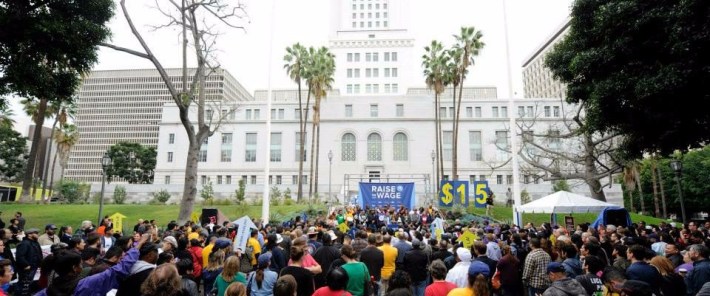
In the coming weeks, the City Council’s Economic Development Committee will be hosting a series of community hearings on this topic. Whether you support the Mayor’s proposal to get us to $13.25/hour by 2017 or Raise the Wage LA coalition that calls for $15.25/hour, your voice is needed. What we cannot stand for is for people to continue to live in poverty by staying at the current minimum wage. Our voices matter.
List of hearings:
- Tuesday, March 24 / 1-3PM / LA City Hall / 200 N. Spring St.
- Thursday, March 26 / 6-8PM / Watts Labor Community Action Center /10950 S. Central Ave. 90059
- Tuesday, March 31 / 6-8PM / Van Nuys City Hall / 6262 Van Nuys Blvd. 91401
- Thursday, April 2 / 6-8PM / Museum of Tolerance / 9786 Pico Blvd. 90035
